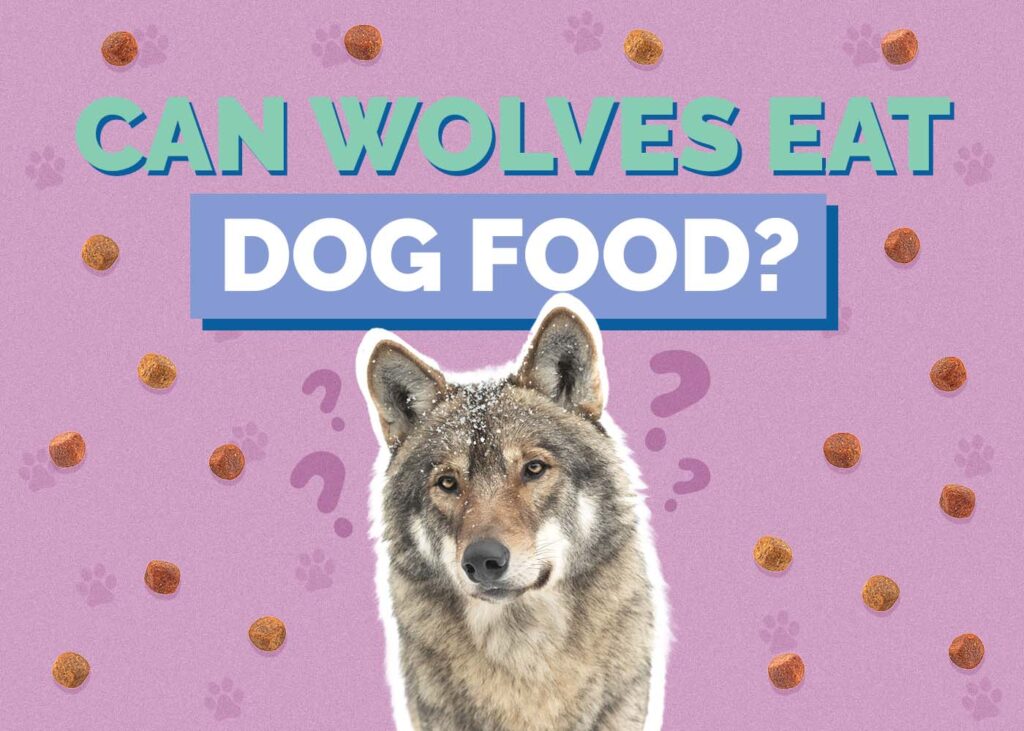Wolves are apex predators, perfectly adapted to thrive on a diet of wild prey. Their digestive systems and nutritional needs are finely tuned to process the nutrients found in meat. While commercially prepared dog food is designed to meet the dietary requirements of domesticated dogs, it’s not necessarily suitable for wolves. This article delves into the complexities of feeding can a wolf eat dog food and explores the potential risks associated with this practice.
This article will examine the nutritional composition of both wild prey and dog food, highlighting the key differences that impact wolf health. We’ll also discuss the potential health problems that can arise from feeding wolves dog food and explore alternative dietary options that better cater to their natural needs.
Can Wolves Eat Dog Food?
Technically, yes, wolves can consume dog food. Their digestive systems are capable of breaking down the ingredients found in most commercial dog kibble. However, this doesn’t mean it’s a healthy or appropriate choice for them. Dog food is formulated to meet the specific nutritional requirements of domesticated dogs, which have different dietary needs compared to their wild counterparts.
Wolves evolved over millennia to consume a diet primarily consisting of raw meat and bones from their prey. This natural diet provides them with a rich source of essential nutrients like protein, fat, vitamins, and minerals that are crucial for their survival and well-being. Dog food, on the other hand, often contains processed ingredients, fillers, and artificial additives that may not be readily digestible or beneficial for wolves.
Nutritional Needs of Wolves

Wolves have evolved to thrive on a diet rich in protein, fat, and essential nutrients found in raw meat. Their digestive systems are specifically adapted to break down and absorb these nutrients efficiently. A typical wolf’s diet consists of:
- Muscle Meat: Provides the primary source of protein, essential for muscle growth, repair, and overall bodily functions.
- Bones: Offer a valuable source of calcium and phosphorus, crucial for strong bones and teeth. Wolves also benefit from the marrow found within bones, which is rich in nutrients like iron and vitamin B12.
- Organs: Liver, heart, and other organs are packed with vitamins, minerals, and essential fatty acids that support various bodily functions.
Risks of Feeding Wolves Dog Food
Feeding wolves dog food can pose several risks to their health and well-being:
- Nutritional Deficiencies: Dog food often lacks the essential nutrients found in a natural prey diet, such as taurine, which is crucial for heart health in wolves.
- Digestive Issues: The processed ingredients and fillers in dog food can be difficult for wolves to digest, leading to gastrointestinal problems like diarrhea, vomiting, and bloating.
- Obesity: Dog food is often calorie-dense, and feeding it to wolves can contribute to obesity, which increases their risk of developing other health problems.
Health Problems in Wolves

Feeding wolves dog food over extended periods can lead to a range of health issues:
- Heart Disease: A lack of taurine in the diet can cause dilated cardiomyopathy, a serious heart condition that can be fatal.
- Bone and Joint Problems: Deficiencies in calcium and phosphorus can weaken bones and increase the risk of fractures and joint problems.
- Immune System Suppression: A lack of essential nutrients can compromise the immune system, making wolves more susceptible to infections and diseases.
Alternatives to Dog Food for Wolves
If you are involved in wolf care or rehabilitation, it’s crucial to provide them with a diet that meets their natural nutritional needs.
- Raw Prey Diet: The most appropriate option is to feed wolves a raw prey diet consisting of muscle meat, bones, organs, and sometimes even whole carcasses. This mimics their natural feeding habits and provides all the essential nutrients they require.
- Commercial Wolf Food: Some commercially prepared wolf food options are available that are formulated to meet their specific dietary needs. These foods typically contain high-quality ingredients and a balanced ratio of protein, fat, vitamins, and minerals.
Conclusion
While wolves can technically eat dog food, it’s not a suitable or healthy option for them in the long term. Their nutritional requirements differ significantly from those of domesticated dogs, and feeding them dog food can lead to serious health problems. Providing wolves with a diet that closely resembles their natural prey is essential for their well-being and survival.



